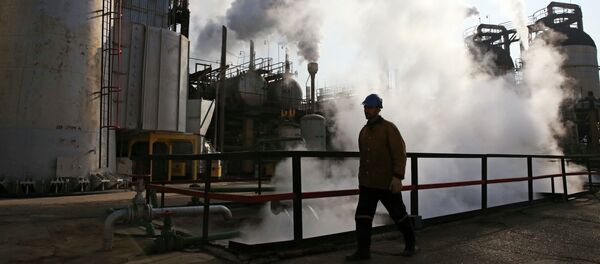Among the companies forced to cut jobs are small-caps and transnational giants alike, and job losses have affected both advanced economies and emerging markets.
According to estimates by the Houston, TX-based energy consultancy Graves & Co., the total amount of jobs lost all over the world due to the economic effect of the low crude prices has surpassed the mark of 250,000 and still counting.
The decline in commercial performance of most energy companies is to blame, with industry profitability at its multi-year lowest, and investment cuts hardly supporting any expansion in short-to-medium-term.
In the past two months only, energy companies have laid off some 25,000 personnel, as the amount of active oil derricks in the United States has slumped to its pre-shale boom 2010 level. In late 2014, there were some 1,600 active drilling rigs, now most of them have been idle, with only 600 still operating.
In the US, smaller oil producers Devon Energy and Marathon Oil cut 400 jobs in the last two months, while a larger energy enterprise Superior Energy Services announced plans to cut 4,780 jobs. In Canada, Husky Energy laid off 1,400 personnel, while the Danish Maersk Oil discharged 12% of its global staff, or about 1,250 jobs.
Job losses in mining alone, including oil extraction, exceeded 8,900 payrolls, with other sectors slightly compensating for the losses with mediocre gains.
"If low oil prices continue, then we can expect to see greater impact on the state’s workforce, especially in areas dependent on the oil industry," Curt Eysink of the Louisiana Workforce Commission said.
In Texas, the labor market is still upbeat, adding jobs everywhere but the energy sector. The Texas Workforce Commission reported an increase in payrolls by 20,000 in October alone, but mining (including oil) shed some 2,000 jobs and dropped some 32,900 jobs since October 2014.
However, the current job losses are much less than those triggered by the massive oil bust of 1986. Back in the day, Texas alone suffered 240,000 lost jobs over several years. It is possible, however, that further energy job losses would match or even exceed those numbers.
"It’s going to get worse before it gets better," John Graves of Graves & Co. said.
It is hard to say how many energy jobs were erased by the low oil prices in nations like Saudi Arabia, or Nigeria due to the insufficient accountability and excessive involvement of national governments in the energy sector there. But a monopolistic structure of the energy sectors there suggests a delayed accumulated shock to the labor market amidst the prevailing negative trends.







